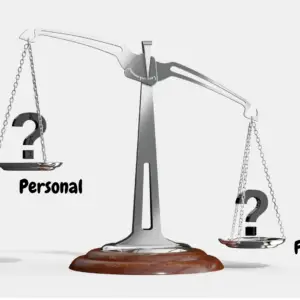An emergency fund is your first line of defence for personal finance wellness – it acts as a self-insurance fund. This article focuses on the tale-tell signs that you need one.
What Causes people to fall into Debt.
The common causes are lack of proper planning or being comfortable in a cycle to cycle spending.
It comes with the pronunciation of: ‘if it ain’t broke, don’t fix it!’ The comfort of a cycle to cycle spending attracts the use of short-term credit. It also addresses symptoms while it ignores any lingering root cause. You do not mind justifying why this is the best way to do life.
One of the common ways of justifying this sort of lifestyle is using a credit card as the go-to emergency fund. Some people do not mind the trap of falling late on payments. The core reason; it provides some relief from the pressure perceived as intolerable. As you do this, you are treating the symptoms instead of addressing the root cause of the money shortage. Below are the signs of a lack of an emergency fund:
1. You are unable to meet monthly bills on time
The current bills seem to have come sooner – last month’s bills are still not paid. The next due date is around the corner! As you start making the payments, you begin to feel that you are left with more months than there is money.
2. You are easily triggered by calls and demand letters from creditors
You detest receiving letters and phone calls! You seem to ask: Why can they not just let me be; will they ever leave me alone?

3. Poor record-keeping and Non-tracking of transactions
The thought of keeping records smells of hard work. You do not monitor the chequebook running balance; you never know how much is in your bank account – a common cause of bouncing cheques. Another symptom is failure to keep track of variable bills like; taxes, annual insurance premiums, birthday celebrations, holiday shopping, etc. Even though you know these dates will come along, you choose to play the waiting game.
4. You write cheques and hold on to them
This person is very good with tracking and records, yet they are afraid of releasing payments! They only want to see the bank balance intact. Consequently, the bills begin to pile up; they end up spending on other things only to end up in more Debt.
5. Appetite for regular advances
The monthly salary is your emergency fund which you often run to for an advance. Alternatively, relatives and friends are the get-me out of this situation solution. Such becomes a regular script: Please lend me this much; I will pay you tomorrow, in two weeks, max, at the end of the month.
6. Additected to multiple credit cards
Here the alternatives are the key motivation; if option A reaches the limit, I have a plan B, C etc.
7. Self-Entitlement - my money is personal
If this is your perspective, you are right; so is the burden of poor choices. Personal finance is indeed more personal than often thought, an encouraging factor to guide everyone in taking a keen interest in understanding finances. How often do you find yourself disliking the subject of sound personal finance management? Or, do you view any mention of personal finance as a breach of etiquette, or do you find yourself walking away from such situations the moment the subject arises?




